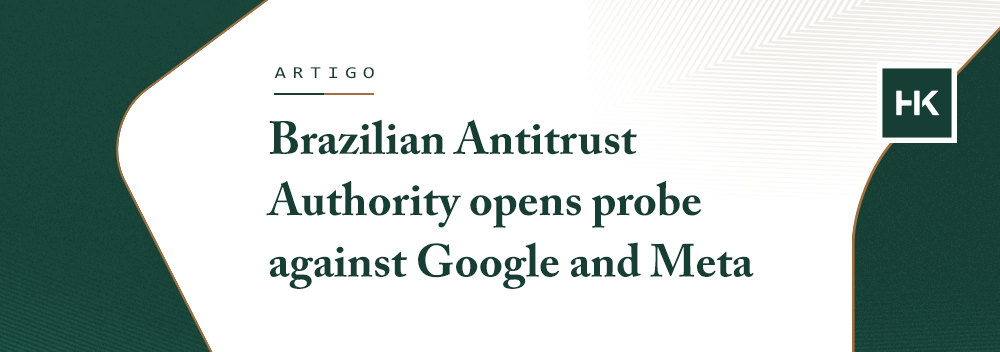Brazilian Antitrust Authority opens probe against Google and Meta

Bruno Renzetti

The Administrative Council for Economic Defense (“CADE”), the Brazilian antitrust watchdog, opened on Tuesday a probe Against Google and Meta. The probe seeks to investigate a potential abuse of dominant position by the companies in the discussions related to a proposed bill currently under appreciation by the Brazilian Congress.
The bill, which if passed will establish the a framework for freedom, responsibility, and transparency in the internet, has been the subject of heated discussions in the last weeks in Brazil. It has been populary dubbed as the “Fake News Bill”, given its aim to reduce the spread of misinformation in the internet. However, its many critics argue that the proposed model could have a chilling effect in freedom of expression.
Big tech companies are amongst the many opposers of the bill. On Monday, Google published a text on its own blog arguing that the proposed bill would in fact promote more misinformation and blur the lines between truth and falsity. The company included a link to the blog on its homepage, so users could access the full text.
The strategy created an intense backslash, particularly in the Federal Government. At CADE’s level, the authority received several complaints alleging a potential abuse of dominant position by the platforms to promote a campaign against the bill. There have also been complaints that Google would be employing its economic power to promote news pieces and opinions against the proposed legislation.
According to the decision signed by Mr. Alexandre Barreto, General-Superintendent of CADE, the authority is alert to promptly investigate anticompetitive conducts in digital markets. Mr. Barreto also mentioned that Google is the Defendant in two additional investigations (Google News and “Jedi Blue”) currently underway at CADE.
CADE issued requests for information to the legal representatives of Meta and Google. The authority also formally notified the Federal Prosecutor’s Office, the National Council for Consumer Defense and the National Authority for Data Protection. Important to note that the RFIs do not specify what exactly would be the anticompetitive conduct, but only request the companies to submit a formal brief and specify which means the company employed to publicize their position against the bill.
Google answered the RFI arguing that the public support or opposition to a proposed legislation does not translate into an antitrust harm, according to the Brazilian Constitutional framework. The mere publication of an op-ed does not mean an abuse of dominant position. Meta also argued in a similar fashion, stressing that no modification was made in its advertisement policy to boost content for or against the proposed bill.
The probe opened by CADE is preliminary and has the ultimate goal to assess whether the authority has jurisdiction over the matter. Should the answer be positive, it will initiate a formal in-depth investigation of the companies’ alleged anticompetitive conducts.
Área relacionada:


